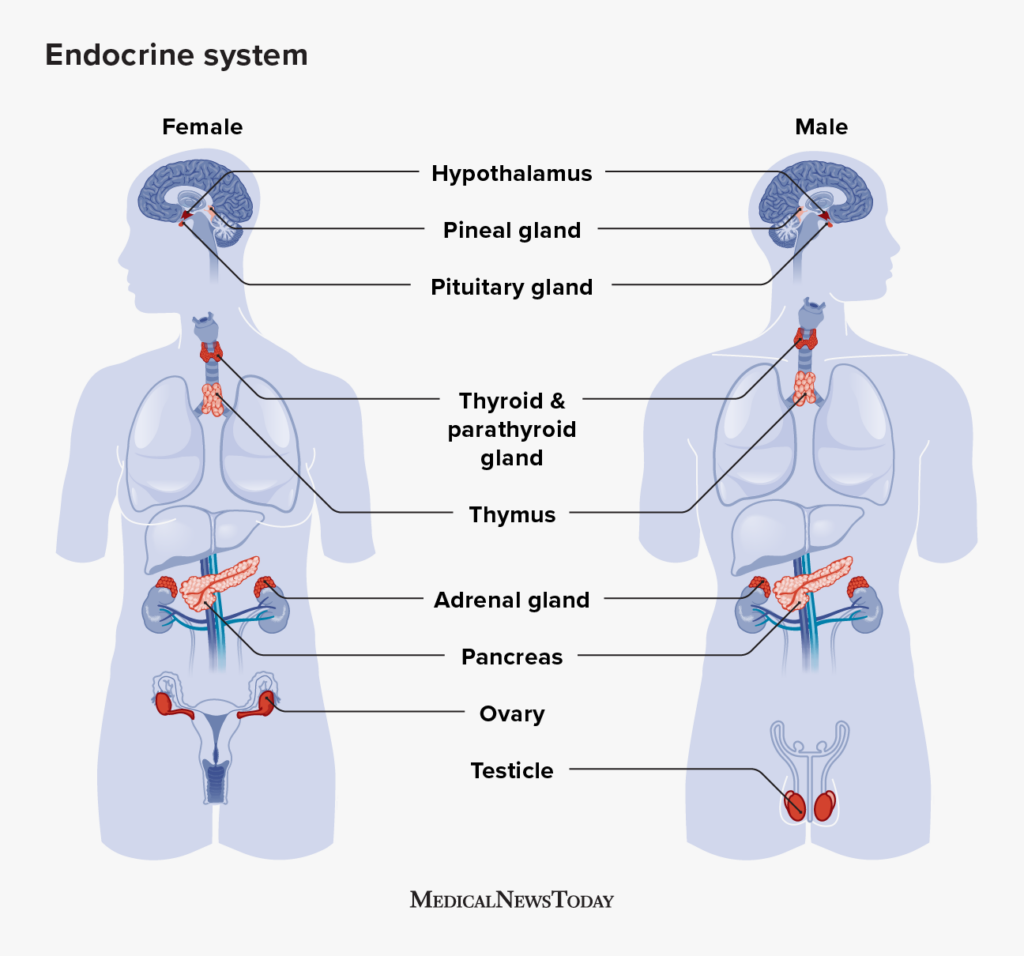Best Endocrinologist Near Me: Finding Top Medical Specialists
Wiki Article
The Scientific Research Behind Hormonal Agent Regulation: Insights From an Endocrinologist
The Science Behind Hormone Policy: Insights From an Endocrinologist offers an extensive expedition of the elaborate processes entailed in hormonal agent policy. Whether you are a medical expert looking for a deeper understanding of endocrine function or a specific interested in discovering concerning the scientific research behind hormone law, this publication is an important resource.Hormones and Their Features
Hormonal agents play crucial functions in the guideline and sychronisation of different physiological procedures within the body. These chemical carriers are created by endocrine glands and are released into the bloodstream, where they take a trip to target cells or body organs to exert their impacts. The functions of hormones vary and incorporate nearly every facet of human physiology.Among the primary functions of hormones is to maintain homeostasis, which is the steady inner environment required for the body to work ideally. Insulin, a hormonal agent produced by the pancreatic, controls blood glucose levels by promoting the uptake and storage of sugar in cells. An additional hormone, cortisol, aids the body respond to stress by increasing blood sugar level levels and subduing the immune system.
Hormonal agents also play critical roles in development and development. Growth hormone, generated by the pituitary gland, stimulates the development of cells and bones, while thyroid hormonal agents manage metabolism and influence the advancement of the nervous system - endocrinologist in liberty hill. In addition, reproductive hormones, such as estrogen and testosterone, are accountable for the growth and maintenance of second sexual qualities and the guideline of the menstruation cycle
The Endocrine System: A Summary
Playing a crucial function in the law and sychronisation of physical procedures, the endocrine system is a complex network of glands that generate and release hormones right into the bloodstream. These glands, consisting of the hypothalamus, pituitary gland, thyroid gland, adrenal glands, pancreas, ovaries, and testes, secrete hormonal agents that act as chemical messengers, affecting various bodily functions. The endocrine system works in conjunction with the nerves to keep and control homeostasis, making certain that the body's interior setting stays stable.It produces hormonal agents that promote or hinder the launch of hormonal agents from the pituitary gland, which in turn regulates the task of other endocrine glands. The thyroid gland, located in the neck, produces hormonal agents that manage metabolic rate and power balance.

Regulation of Hormonal Agent Manufacturing
The regulation of hormonal agent manufacturing entails an intricate interaction in between different glands and responses devices within the endocrine system. Hormonal agents are chemical messengers that play an essential role in maintaining homeostasis and collaborating different physiological processes in the body. The production of hormones is tightly controlled to make certain the correct performance of the endocrine system.The hypothalamus, situated in the brain, works as a crucial regulator of hormone production. It launches hormones that promote or hinder the production of hormonal agents by the pituitary gland, which is typically described as the "master gland" of the endocrine system. The pituitary gland, subsequently, creates hormones that act upon various target glands throughout the body, promoting them to generate and release details hormonal agents.
Comments systems likewise play an essential role in hormonal agent regulation. There are 2 sorts of feedback mechanisms: adverse feedback and favorable responses. Adverse feedback aids preserve hormonal agent degrees within a narrow range. When hormonal agent degrees climb over or drop below the optimum array, the body sets off mechanisms to either decrease or increase hormonal agent manufacturing, specifically, to bring back balance. Favorable comments, on the other hand, magnifies the production of hormones in reaction to certain stimulations, such as giving birth.
Comments Loops in Hormone Regulation
Feedback loopholes play an important role in the regulation of hormone manufacturing. These loopholes involve a collection of interactions in between the endocrine glands, hormones, and target organs to keep homeostasis in the body. There Endocrinologist in leander are 2 kinds of comments loopholes: negative responses and positive feedback.Unfavorable comments is the most common type of feedback loop in hormone policy. It works by picking up the levels of a hormone in the blood and adjusting hormonal agent manufacturing accordingly. When hormone levels climb over a particular limit, the hypothalamus in the brain indicates the pituitary gland to decrease hormone manufacturing. This, subsequently, lowers the excitement of the target organ, resulting in a reduction in hormone secretion. Conversely, when hormonal agent degrees go down listed below the threshold, the hypothalamus stimulates the pituitary gland to increase hormone manufacturing, recovering equilibrium.
Positive feedback loops, on the other hand, amplify hormone production. This takes place when a hormonal agent stimulates the launch of even more of the very same hormonal agent, causing a fast boost in its degrees. Nonetheless, favorable comments loopholes are less usual in hormone guideline and are typically involved in specific physical procedures, such as giving birth and lactation.
Aspects Affecting Hormonal Agent Balance
Factors affecting hormone balance include dietary choices, way of life behaviors, and environmental exposures. These variables can have a considerable impact on the fragile balance of hormonal agents in the body, affecting numerous physiological procedures and overall wellness.Nutritional options play an essential function in hormonal agent law. Consuming a balanced diet regimen that consists of a variety of nutrients is essential for preserving hormonal agent equilibrium.
Adequate sleep is vital for hormone production and regulation, as interrupted sleep patterns can lead to inequalities. In addition, persistent stress and anxiety can dysregulate the hypothalamic-pituitary-adrenal (HPA) axis, a key gamer in hormone law, leading to a cascade of hormonal discrepancies.

Verdict
Finally, comprehending the science behind hormone regulation is essential for keeping general health and health. Hormonal agents play essential duties in different physical features, and their production is managed by complicated feedback loops. Factors such as way of living, diet plan, and anxiety choices can influence hormonal agent balance. By examining and comprehending these devices, we can much better comprehend and manage hormone-related conditions, ultimately causing boosted wellness outcomes.The Science Behind Hormone Guideline: Insights From an Endocrinologist offers a thorough exploration of the detailed processes included in hormonal agent law. It generates hormonal agents that inhibit the release or promote of hormonal agents from the pituitary gland, which in turn regulates the activity of various other endocrine glands. It releases hormonal agents that boost or prevent the production of hormones by the pituitary gland, which is commonly referred to as the "master gland" of the endocrine system. The pituitary gland, in turn, creates hormones that act on different target glands throughout the body, stimulating them to generate and launch details hormonal agents.
When hormonal agent levels rise over a particular limit, the hypothalamus in the mind indicates the pituitary gland to decrease hormonal agent manufacturing. (Endocrinologist in cedar park)
Report this wiki page